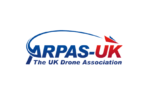
We welcome the concept of having incremental levels of Remote Pilot Competence as more complex operations become routine. The definition of BVLOS is not included. It would be useful to do so. # RPC Level 1: There is little/no? difference in the privileges with the GVC. Therefore, it should just be acknowledged that it would…

In this enlightening interview, Elena Major, Head of Operations at ARPAS-UK, talks with CEO Anne-Lise Scaillierez about the recent drone regulation consultation, focusing on key takeaways like the CAA’s DISCO initiative for digitalisation, the SORA safety methodology, and the integration of CAP-722 for Unmanned Aircraft System operations. This discussion delves into the future of drone…

The CAA aims to launch the new Digital PDRA01 Application Tool at the beginning of March. The aim is to simplify the PDRA01 application and renewal process, and to make it online.The key expected benefit is that applying for an OA will be made easy and quick. The review and approval process will also be automated…

Strong and diverse keynotes today at Westminster eForum on drones to the question: “What priorities and next steps for the UK drone industry?” Our key messages were focusing on “Actions in 2024 to grow the commercially possible at scale & at a reasonable cost of compliance in the Here and Now”. Similar to the crawl,…

The CAA recently published an initial consultation on the future of remote pilot competence. The consultation was open from 5 of July 2023 to the 23 of August 2023 and received 112 detailed responses from a wide range of stakeholders. This second consultation builds on the feedback the CAA received by providing a more detailed policy position….

We had a meeting with representatives of the CAA’s Shared Services Centre SSC team, and would like to share some useful feedback wrt PDRA01 Application on hold. In terms of process within the CAA: The top 3 reasons why PDRA01 OA are put on hold by the SSC team are: 1. Inadequate Emergency Procedures. These are…